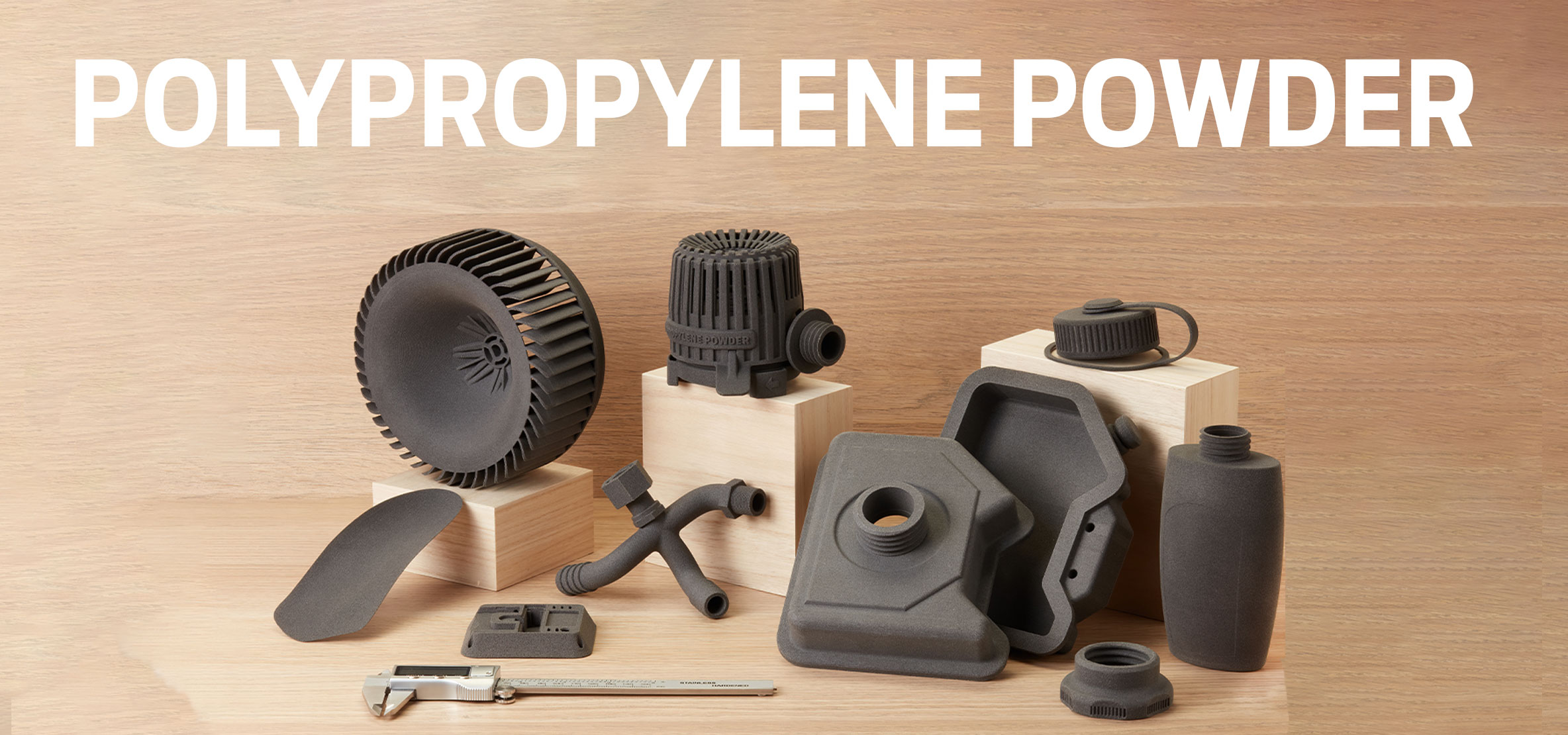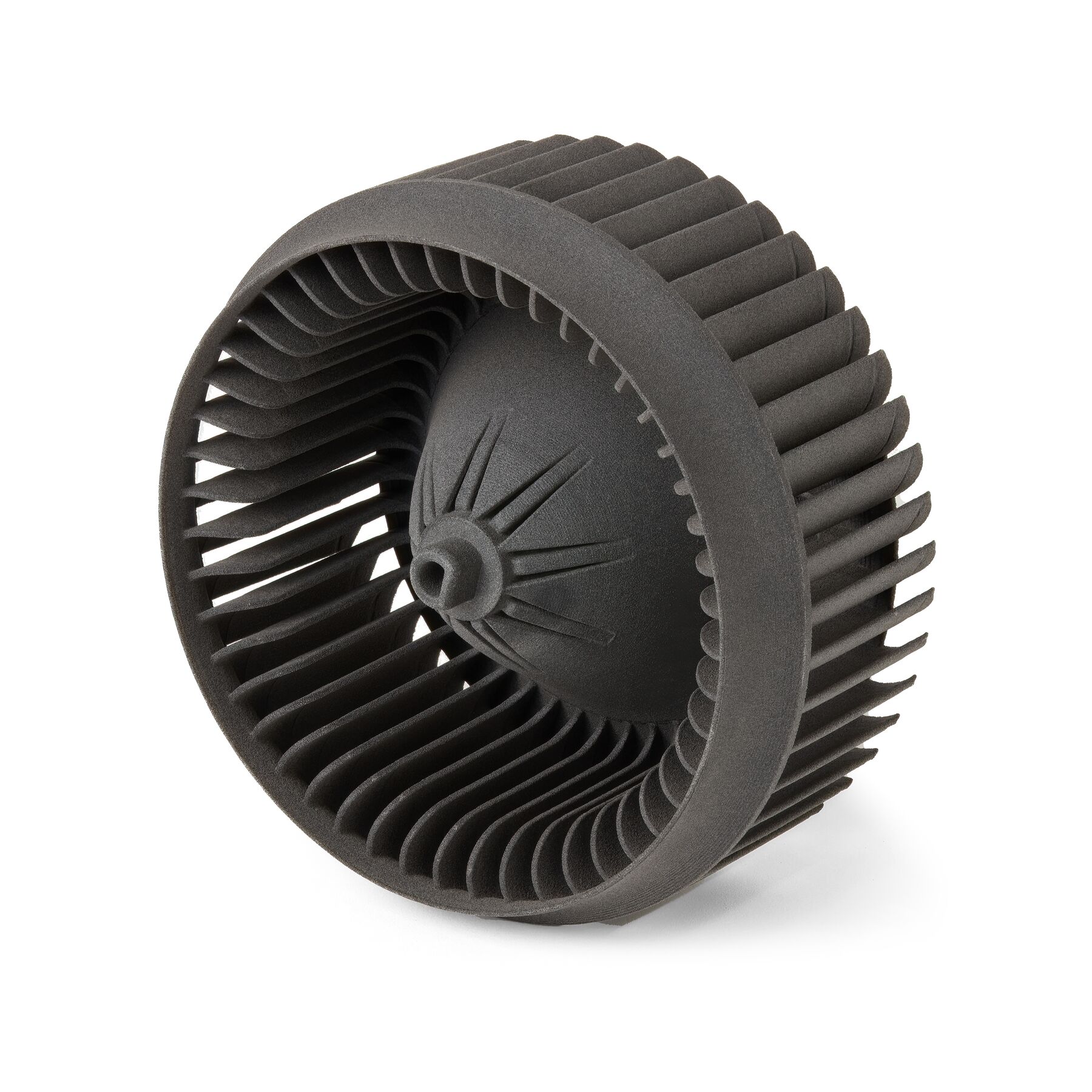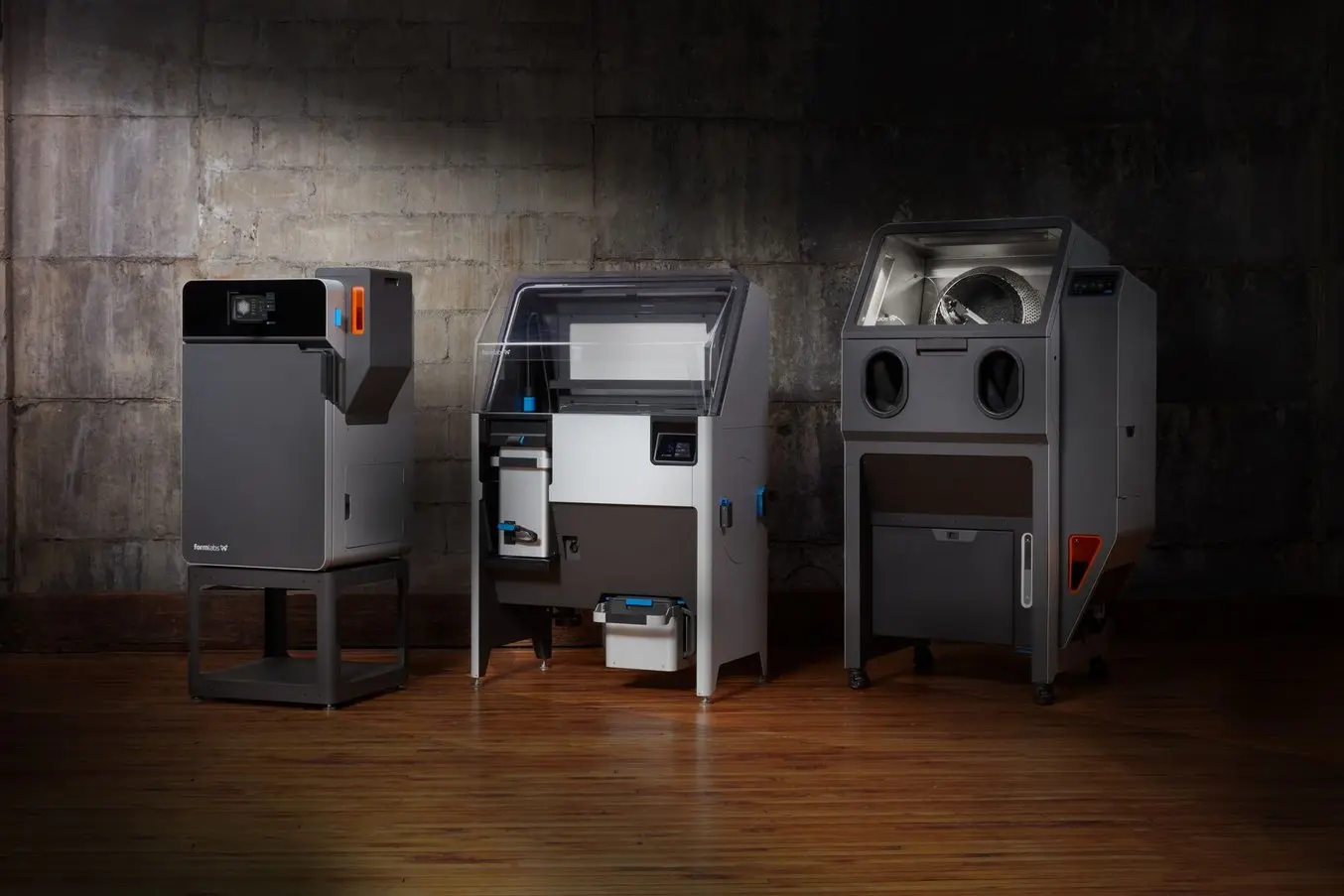Polypropylene Powder from Formlabs: the PP for industrial-grade SLS 3D printing at an affordable price
High-performance material for 3D production of ductile, lightweight, and strong parts without design limitations and at reduced cost

Polypropylene Powder: the new material for Formlabs' Fuse 1+ 30W that improves your in-house production
Polypropylene (PP) is the second most produced plastic material in the world after polyethylene (PE). This is because it is a material with which lightweight, waterproof and chemical-resistant parts can be made, making it suitable for end-use parts applications in many industries (e.g., consumer goods, packaging, automotive, etc.).
The most common methods of producing polypropylene parts are injection molding, thermoforming, blow molding or forming with other traditional processes involving equipment. These workflows prove to be cost-effective for large-scale production, but they nevertheless have the geometric limitations of molding and require a high initial investment associated with tooling. Therefore, they are not cost-effective production options for small volumes or for making custom parts.
Polypropylene Powder from Formlabs is a true thermoplastic polypropylene that allows industrial-quality parts to be made at an affordable cost with a simple and intuitive workflow. The workflow on Fuse 1+ 30W of this powder means there is no need for expensive machinery or equipment, outsourcing of services, or complicated machine setups. Polypropylene Powder makes it easy and convenient to produce polypropylene parts directly in-house.
With the Fuse 1+ 30W printer and Polypropylene Powder, product research and development teams can design, test, and iterate in-house with the same material used for the final product. Without having to use outside suppliers, development time can be reduced from several weeks to 24 hours, as well as increased iteration speed to optimize the product.
Polypropylene Powder has an elongation at break of 34 percent and a flexural modulus of 1327 MPa, with properties similar to injection-molded polypropylenes.

Because of its high elongation at break, Polypropylene Powder enables the manufacture of high-performance end-use parts with remarkable resistance to a large number of chemicals, good tensile strength, and low moisture absorption. These characteristics make it an excellent choice for the production of tough parts for complex applications whose priority is to impart high ductility to lightweight parts.
Application examples:
- Consumer goods
- Packaging for liquid products, sports equipment and electronic components
- Medical devices, such as prosthetics and orthotics
- Industrial and automotive products, such as fluid systems, enclosures, equipment and production aids.
Why 3D print polypropylene if there are already established and reliable production methods?
It is true that traditional mass production workflows for polypropylene parts are reliable, well-established, and cost-effective on large quantities. So why use Polypropylene Powder to 3D print end-use products?
3D printing polypropylene with SLS technology, directly in-house, helps companies to:
- Test new products without investing in creating expensive metal tooling/molds
- Expand customization possibilities
- Produce low volume polypropylene parts cost-effectively
- Take control over the supply chain, making themselves more independent of outside suppliers
- Protect against raw material shortages or supplier changes
- Take advantage of greater design freedom: lattice structures and complex shapes are easy to 3D print, so R&D teams can completely rethink the look, texture and function of their products
Known material, validated SLS workflow
Creating highly ductile parts with 3D printed Polypropylene Powder using SLS technology thanks to the Fuse ecosystem is easier than ever.
Due to its low density, this material enables the production of more units per kg and cost-effective ductile parts with a simplified workflow. The appearance of parts can be further enhanced by post-processing in the Fuse Blast, Formlabs’ automated sandblasting machine, to create clean-to-the-touch parts with a professional polish. The combination of Fuse 1+ 30W, Fuse Sift and Fuse Blast offers an SLS workflow at a very affordable price.

Would you like more information?
Would you like to receive more information about 3D printing with polypropylene or learn about the Fuse ecosystem?
Request a contact with a 3DZ expert.
Contact Us
